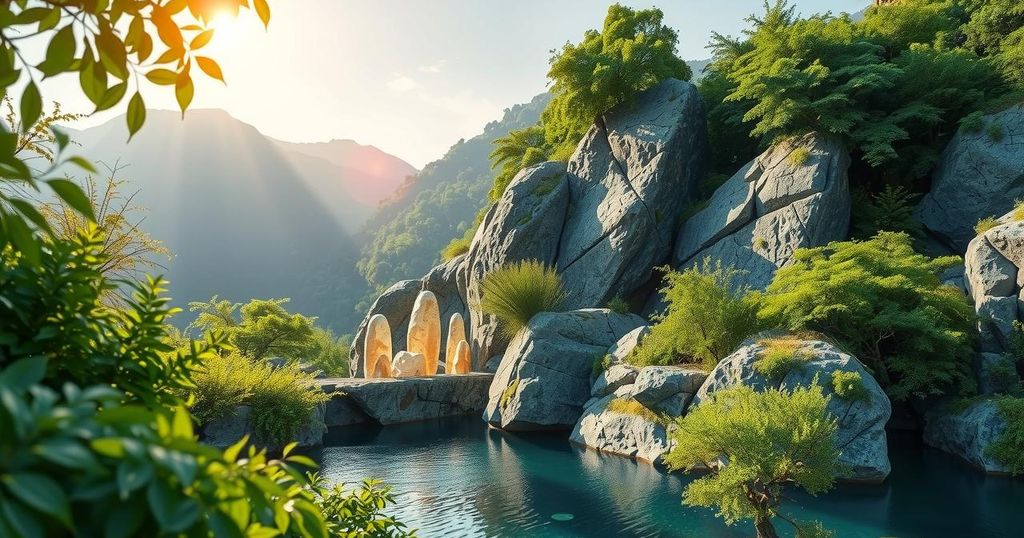President Felix Tshisekedi of the DRC has proposed that the U.S. and Europe access the country’s mineral resources in exchange for peace efforts to resolve ongoing conflicts. Emphasizing direct trade, Tshisekedi’s offer comes after U.S. sanctions on Rwanda’s military figures linked to rebel activities within Congo. Amidst increasing international scrutiny, the DRC holds significant cobalt, tantalum, and other essential mineral resources, crucial for global markets.
Democratic Republic of Congo (DRC) President Felix Tshisekedi has proposed an exchange of the DRC’s mineral resources for a peace intervention from the United States and Europe to end the ongoing conflict. Presidential Spokesperson Tina Salama emphasized the need for the U.S. to purchase critical minerals directly from the DRC, rather than resorting to looted resources transported through Rwanda.
In a New York Times interview, Tshisekedi indicated that a minerals deal could enhance security and stability in Congo. He noted that previous discussions with the Trump administration included securing a direct supply of essential minerals from the DRC.
These negotiations follow recent U.S. sanctions against Rwandan military officer James Kabarebe, linked to the M23 rebel group that is actively involved in seizing territory within DRC, including Goma. This conflict raises concerns regarding the potential expansion of M23 towards the DRC capital, Kinshasa, though experts consider such a move unlikely due to the considerable distance involved.
While the U.S. has had limited access to Congo’s mineral wealth, China has gained substantial benefits. Conversely, the European Union has been negotiating with Rwanda, providing considerable financial aid in exchange for minerals like tin and tungsten.
EU foreign ministers recently met but did not reach a consensus on sanctions against Rwanda for its role in the mineral conflict. However, the EU is considering a re-evaluation of its agreement with Rwanda concerning critical raw materials.
Belgium has established agreements with the DRC to secure access to vital minerals, highlighting Rwanda’s significant role in global tantalum extraction and its emerging lithium and rare earth potential.
Numerous reports from the UN accuse Rwanda of exploiting Congo’s crises for mineral loot, focusing on gold, copper, cobalt, and coltan, which are critical for electronics and electric vehicle batteries. The M23 seizure of lucrative mining areas exacerbates resource challenges in the DRC.
Congo remains the largest global cobalt producer, with substantial resources of tantalum and tungsten. Issues surrounding mining practices raise severe environmental, ethical, and human rights concerns, including reports of child labor in hazardous conditions associated with these industries.
President Tshisekedi’s initiative underscores a strategic approach to leverage Congo’s mineral wealth to negotiate peace. With rising international interest in DRC’s resources, particularly in light of ongoing conflicts, the urgency for ethical sourcing and responsible industrial practices has never been more apparent. The DRC’s role as a critical supplier of minerals, coupled with geopolitical interests, shapes the dynamics of both peace efforts and resource management. Ensuring that trade agreements prioritize ethical considerations and environmental standards will be crucial for sustainable development.
Original Source: www.mining.com






